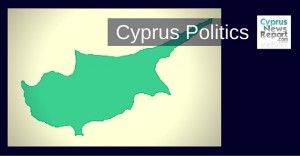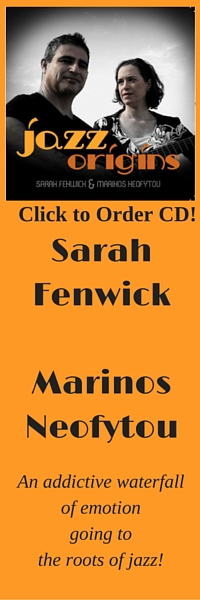
Power Struggle over National Council, Reunification Talks
There is a power struggle between DIKO head Nikolas Papadopoulos and President Nicos Anastasiades over the National Council, which monitors the reunification talks between the Greek-and-Turkish Cypriot communities.
After several leaks of sensitive information about the current negotiations, Anastasiades decided to meet with party leaders and National Council members on a personal basis rather than convening the council. The way the council works is ineffective, and the president will present his ideas on reforming it after the general election on May 22nd, said Government Spokesman Nicos Christodoulides.
But Papadopoulos - who is a hardliner on the Cyprus problem - criticised the one-on-one meetings, saying they are ineffective and unproductive.
Turkey has not changed its position on Cyprus, so there is no progress, he said, when asked his opinion about the reunification talks. There are still tens of thousands of Turkish settlers in the occupied north of the island, and hostile moves by Turkey, he said.
“Some insist on advertising the occupation leader (Mustafa Akinci) and telling us there is progress. We don’t endorse this progress,” said Papadopoulos.
Turkey has occupied Cyprus since 1974, refusing to withdraw its troops on the pretext that it is protecting the Turkish Cypriots - many decades after the events that triggered the near war between Greece and Turkey, both of which were trying to control the island.
In reality, Turkey’s troops are segregating the two communities, making communications and relationship building extremely difficult, while maintaining a strategic military outpost in the Eastern Mediterranean. Other than the lip service paid to a peaceful solution, Turkey’s leadership remain cynically determined to interfere wherever possible and extend its unwanted influence into the rest of the island.
The Turkish Cypriots have reacted negatively to Turkey’s heavy-handed military and political policies in their community many times over the decades.
Although it can’t be denied that there was inter-communal fighting in the 1960’s and early 1970’s, the reason for this fighting were the now-outdated political paradigms of joining Greece (Enosis) or Turkey (Taksim), and the militants who formed around these concepts.
Unless the political leadership updates its thinking and creates new political paradigms of communal togetherness, while spreading the positive aspects of living together in peace, Turkey will always have leverage over the island’s future because of the domestic disagreements. Greece has completely changed course since the 1960’s and 70’s, when there was a fascist dictatorship. While being a strong ally, Greece has even offered to give up its guarantorship and respect Cyprus’ independence and sovereignty. The UK, another historical player in the island’s conflict, has also signalled that it no longer believes in the guarantorship system.
It is a delicate time in the island’s history. Turkey’s president Erdogan often appears irrational and hostile to European values like freedom of speech, and it’s unlikely that the policy on Cyprus will change under his administration. What is possible is much better communication and relationships between the two communities, and this process has started with several initiatives like a joint education committee and friendly relations between Anastasiades and Akinci. The more examples set like this, the less influence the dinosaurs of political thinking will have.
While nobody is willing to accept an unfair solution, if a balanced one is reached, it should be communicated effectively to the public so they can make up their own minds and not make decisions based on the circumstances in the 1960s.
Stay updated with this and other top stories by joining CNR News Club!
About Sarah Fenwick
Editor, journalist, jazz singer and digital marketing consultant.
Bookmark worthy
- Non Gamstop Casino
- Casino Not On Gamstop
- Non Gamstop Casinos
- Casino Italiani Non Aams
- Slot Sites Not On Gamstop
- Best Non Gamstop Casinos UK 2025
- Crypto Casino
- Online Casinos UK
- Betting Sites Not On Gamstop UK
- UK Casino Not On Gamstop
- Best Non Gamstop Casinos
- Sites Not On Gamstop
- Online Betting Sites Not On Gamstop
- Non Gamstop Casino
- UK Casinos Not On Gamstop
- Non Gamstop Casino
- Casino Sites Not On Gamstop
- Casino Non Aams
- Casinos Sin Licencia España
- Casino Sites UK
- Slots Not On Gamstop
- Best Slot Sites For Winning UK
- Casino En Ligne
- Slots Not On Gamstop
- Non Gamstop Casino Sites UK
- Casino Non Aams
- Non Gamstop Casinos
- Meilleur Casino En Ligne France
- Meilleurs Sites De Paris Sportifs Belgique
- Nouveau Casino En Ligne Belgie
- Nouveau Casino En Ligne Francais
- Paris Sportif Ufc France
- Casino En Ligne Retrait Immediat
- Migliori Casino Online
- Site Casino En Ligne
- Nouveau Casino En Ligne Francais
- Casino En Ligne Francais
- Casino En Ligne
- Best Online Casino Sites In Malaysia
- Avis Tortuga Casino



Leave a reply
You must be logged in to post a comment.